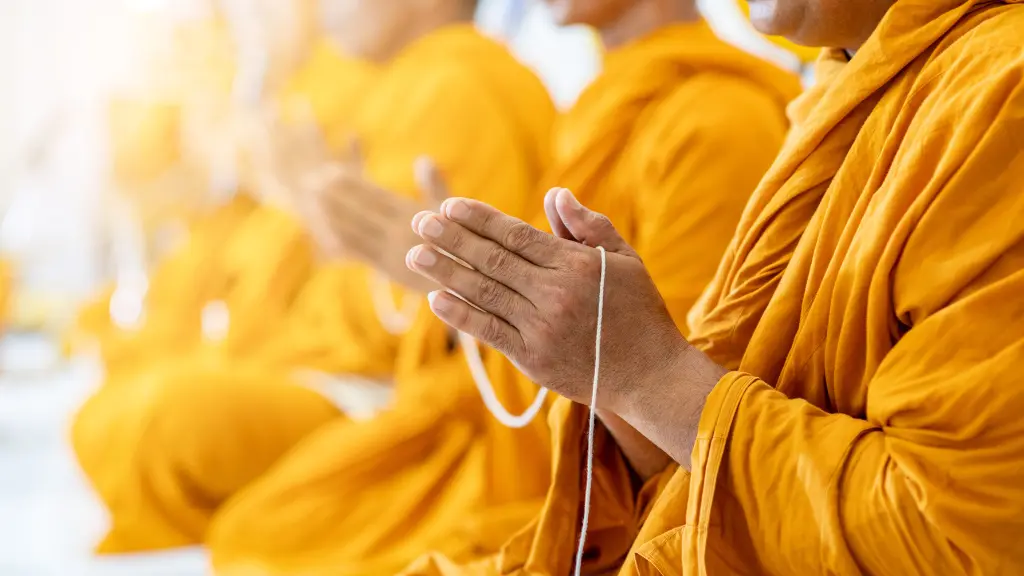Buddhist habits are not just spiritual practices but are also practical approaches to cultivate a healthier, longer life. From mindful eating to gratitude practices, these habits nurture both mind and body, creating a foundation for lifelong wellness.In today’s fast-paced world, achieving a healthy, balanced lifestyle is often challenging. Many turn to ancient practices to find inner peace and health, and Buddhism offers a rich source of wisdom in this regard.
You May Also Like: Foods That May Be Harmful When Overcooked
1. Meditation for Mental and Physical Health
Meditation is central to Buddhism and is practiced daily by many Buddhists worldwide. It reduces stress, improves mental clarity, and strengthens emotional resilience. Studies show meditation lowers blood pressure, reduces the risk of heart disease, and can even slow aging. Practicing meditation for even 10-20 minutes daily can bring noticeable improvements to your well-being.
2. Mindful Eating
Buddhist monks practice mindful eating, focusing on each bite and fully experiencing the food without distractions. This approach can help with portion control and improves digestion by allowing the body to absorb nutrients efficiently. Eating mindfully also encourages choosing healthier, whole foods and reduces the likelihood of overeating. Try to savor your meals without screens or distractions.
3. Gratitude and Contentment
Gratitude is a cornerstone of Buddhist philosophy, fostering a positive outlook. In Buddhism, contentment is key to avoiding excessive desires that often lead to stress. Cultivating gratitude through daily reflection or journaling can shift focus from stressors to blessings, enhancing overall mental health. Research supports that gratitude practices can improve sleep, reduce stress, and lead to longer lives.
4. Living in the Moment
Buddhists embrace the concept of living in the present, as the future and past can only create stress if dwelled upon too much. This habit, also known as mindfulness, encourages focusing on each moment without judgment. Living in the present reduces anxiety, improves concentration, and enhances appreciation for life’s simple pleasures. Daily mindfulness practices like deep breathing can make this habit part of your life.
5. Compassion and Kindness
Compassion is deeply ingrained in Buddhism, and it’s more than just a moral practice—it has physical benefits too. Acts of compassion and kindness release endorphins, reduce stress, and build strong social bonds. Giving back or simply being kind to others can have a profound effect on your emotional health, thereby improving your overall physical health and potentially increasing longevity.
6. Acceptance and Letting Go
A core Buddhist practice is accepting things as they are. This doesn’t mean avoiding change but letting go of attachment to outcomes, reducing stress, and improving emotional resilience. Accepting what you cannot control helps you move on from setbacks faster. This approach is especially helpful in maintaining mental clarity and reducing the risks associated with chronic stress.
7. Regular Physical Activity
Buddhism advocates for physical well-being alongside mental health. Monks and practitioners often engage in light forms of exercise, like walking meditation, that help keep their bodies strong and minds calm. Gentle physical activity like walking, yoga, or stretching can enhance blood circulation, reduce the risk of diseases, and improve energy levels.
8. Balance and Moderation
The Middle Way, a foundational Buddhist concept, promotes balance and moderation in all areas of life. Buddhists avoid excess and focus on a balanced lifestyle, eating, sleeping, and working in moderation. This approach prevents burnout and helps maintain a healthy body and mind. Striking a balance between work, leisure, and rest is key to sustaining a long, healthy life.
9. Acceptance of Aging and Mortality
Buddhist teachings emphasize acceptance of life’s natural processes, including aging and death. This outlook encourages a peaceful acceptance of aging and reduces the fear of mortality, which can lead to a happier, healthier life. By accepting the inevitable changes of aging, individuals reduce the stress that comes from fearing life’s natural progression.
10. Detoxing from Material Desires
Buddhism teaches that excessive attachment to material possessions can lead to unnecessary stress. Practicing minimalism and focusing on experiences over things promotes a life free of the pressures that come with consumerism. Regularly reassessing what you truly need can lead to less stress, more freedom, and a more meaningful life.
Conclusion
The habits promoted in Buddhism offer a simple yet powerful guide to a healthier, longer life. They emphasize a balanced lifestyle, mental clarity, kindness, and mindfulness. By adopting these practices, anyone can benefit from increased mental well-being, improved physical health, and a deeper sense of purpose. Whether you start with daily meditation or focus on mindful eating, incorporating Buddhist habits can help create a foundation for a happier, healthier life.










